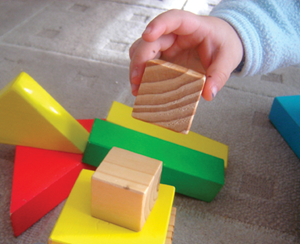Middletown autism centre: purpose questioned
 A major North/South project’s purpose has again been questioned, with claims that it will not properly meet the needs of children with autism. Lord Maginnis has said the cross-border Middletown centre on autism should be replaced by assessments by health visitors, followed up by local support services.
A major North/South project’s purpose has again been questioned, with claims that it will not properly meet the needs of children with autism. Lord Maginnis has said the cross-border Middletown centre on autism should be replaced by assessments by health visitors, followed up by local support services.
Middletown has been hailed as a major example of all-island co-operation, having been jointly established by both governments in 2007.
It currently trains staff working with autistic children, such as teachers and classroom assistants, and a residential block is due to be built to let referred children stay over for assessment.
Lord Maginnis, who chaired an independent review of autism services for Michael McGimpsey, strongly disagrees with its concept.
The former convent was purchased from the Catholic Church on the proviso that it would be used for educational purposes. While he considers the original £3 million purchase a “very good deal”, he thinks that describing Middletown as a centre of excellence is premature: “Centres of excellence are earned; they are not nominated.”
His main objection is that children would be brought out of their normal environment, to be assessed at the centre: “You can assess a child best in his own home, in his own surrounding, looking at his reaction to his parents and his toys and to you as a stranger.”
The centre’s learning support service plans to provide five-week assessments to the 140 most challenging cases from across the island and the educational assessment service will also offer a further 180 two-day assessment places.
“We will see around 250 children coming on the spectrum each year in Northern ireland alone, but since this is supposed to be a cross-border initiative there could be up to 850 altogether,” he said.
He also claims the Irish Government was reluctant to fund the centre. There were plans to withdraw southern funding in April 2009 but these were reversed last December after lobbying by Caitríona Ruane.
His alternative would see health visitors visiting children at home when they are two years old and assessing them for autistic tendencies; they could then tailored local support well before they started school.
“One of the current handicaps is the lack of cross-departmental co-operation and the desire to pursue an ideological, rather than a practical, programme overall,” he added. “What we have got to do is put a lot of effort into health visitors, nurses and GPs being aware of the need for early identification, particularly but not exclusively in respect of autism.”
Maginnis’ criticism was dismissed by Caitríona Ruane.
“From the very outset, for whatever reason, Ken Maginnis has set his face against the concept of the all-Ireland centre of excellence at Middletown,” she told agendaNi.
She added that the centre “will be concerned with educational assessment and support, not diagnosis” and was designed to provide specialist support for children and young people “who experience the most significant and complex learning difficulties”. Local services would be provided in most autism cases with Middletown providing support to the staff involved.
“The practicalities of carrying out a complex multi-disciplinary assessment are such that they need to be carried out on-site,” Ruane said. “The range of sophisticated equipment which will be available on-site, when combined with the range of staff from a number of disciplines, would not allow for all aspects of such a complex assessment to take place in the child’s home.
“Before a child is referred to the centre, it is also very likely that he or she will have already received an educational psychologist’s assessment that will have taken place in either the child’s home or educational setting.”
She said education and health sector officials were involved in the initial steering group and the centre’s staff received a “positive response from parents and professionals” in an all-island consultation.
Maginnis claims that the exercise was not comprehensive. Responding to the Minister, he restated that centres of excellence were “earned, not created in isolation” and support was required locally, not “shipped from perhaps 100 miles away”. He added that assessments “have much more to do with relationships with the familiar – things, places and people.”





